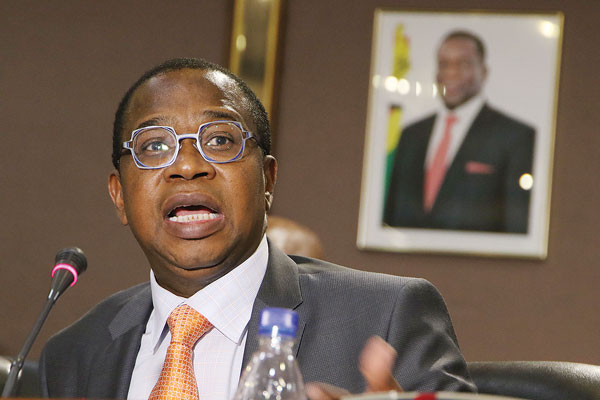
Zimbabwe has so far borrowed USD$1,25 billion from the African-Export Import Bank (Afrexim Bank) without following laid down procedures, it has emerged.
BY VENERANDA LANGA/XOLISANI NCUBE
Responding to a question by Mt Pleasant MP Samuel Banda (MDC) in the National Assembly recently, Finance minister Mthuli Ncube admitted that government breached the law by taking loan facilities without approval of Parliament. “When the question was posed, the figure was US$753 million and then you add the other US$500 million, so that takes us to US$1,25 billion,” Mthuli said.
The minister came under attack from lawmakers over failure to seek parliamentary approval on the loans, with the latest being a $500 million facility by (Afrexim Bank), which was said to be for stabilisation of the currency market.
In terms of section 300 of the Constitution, Ncube was first supposed to come before Parliament to seek approval to borrow from Afrexim Bank, but he did not do so.
Section 300(1) of the Constitution stipulates that an Act of Parliament must set limits on borrowings, the public debt, debt and obligations whose payments or repayment is guaranteed by the state and that those limits must not be exceeded without the authority of the National Assembly.
Harare North MP Allan Norman Markham (MDC Alliance) said Ncube must explain to the National Assembly why he did not bring the $500 million loan contract for scrutiny before Parliament?
Reports claim that the collateral for the loan is a mine at the Great Dyke.
- Chamisa under fire over US$120K donation
- Mavhunga puts DeMbare into Chibuku quarterfinals
- Pension funds bet on Cabora Bassa oilfields
- Councils defy govt fire tender directive
Keep Reading
This was followed by questions from Harare East MP Tendai Biti (MDC ALliance), who said inasmuch as the $500 million facility was a welcome move, the law was clear that any contract pertaining to a debt entered into without Parliament approval is invalid.
“The law is very clear that you cannot contract a debt with an international organisation which imposes fiscal obligations on Zimbabwe before Parliament has approved, and if Parliament has not approved, that debt is invalid. Why does the government keep on borrowing money from the African Export Import Bank without Parliament approval?” Biti asked.
The former Finance minister also questioned why Afrexim Bank continued to grant Zimbabwe loans, now to the tune of USD$1,25 billion, when its balance as a bank was $2 billion.
Ncube’s response to Biti was that when he (Biti) was Finance minister, he never used to bring loan agreements to Parliament for approval.
But Mbizo MP Settlement Chikwinya (MDC Alliance) jumped to Biti’s defence, saying that when he was Finance minister, he brought before Parliament for approval a $400 million loan facility from China for the Defence College.
“The $500 million refers to the recently announced facility that we sourced from Afrexim Bank, and the aim of this facility really is for us to stabilise our balance of payment situation and be able to meet the demands for the US$ and for external payments so that we stabilise the issues that impact on our currency,” Ncube said.
“We will begin to access these resources as is required and again, I will be happy to report on the utilisation of these resources to this august House or indeed, any other resources that we source externally in terms of the law.” Ncube said how the Afrexim Bank structure loans to Zimbabwe were its business.











